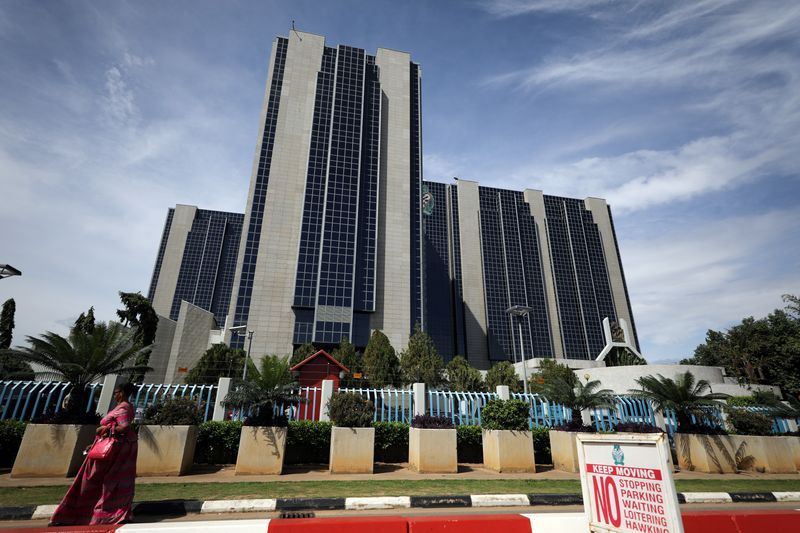By Chijioke Ohuocha, Elisha Bala-Gbogbo and MacDonald Dzirutwe
ABUJA (Reuters) -Nigeria's central bank delivered another big interest rate hike on Tuesday, responding to a continued rise in inflation which hit a 28-year high in April.
Central Bank of Nigeria Governor Olayemi Cardoso said the bank's Monetary Policy Committee (MPC) was faced with a decision to either raise or hold rates while it observed the impact of previous hikes, but opted for an increase in the interests of price stability.
The Monetary Policy Rate was increased by 150 basis points (bps) to 26.25%, the third rate increase this year after hikes of 200 bps in March and 400 bps in February.
"The balance of risks suggests further tightening of policy to build on the benefits from previous hikes," Cardoso told a news conference.
Economists had widely predicted another hike given soaring inflation and the highly volatile naira currency.
"A bold policy move was required to bring Nigeria's real rates closer to positive territory and halt the naira's decline," said Danny Greeff, an analyst at ETM Analytics.
Inflation reached 33.69% year-on-year in April - a level not seen since mid-1996 - spurred by the government slashing petrol and electricity subsidies and twice devaluing the naira since President Bola Tinubu took over last year.
The central bank has more work to do to rein in price pressures and there could be more rate hikes to come, analysts said.
The International Monetary Fund has welcomed the central bank's previous hikes and called for decisions to be data-driven.
Cardoso has pledged to curb inflation, support the naira and depart from the unorthodox policies of his predecessor who blurred the lines between monetary and fiscal policy with direct interventions to try to lift economic growth.

The government is also struggling to lift output from its crucial oil sector and keep a lid on rampant insecurity that has left swathes of the country outside its control.
The central bank's next rate-setting meeting is scheduled for July.